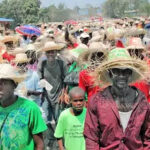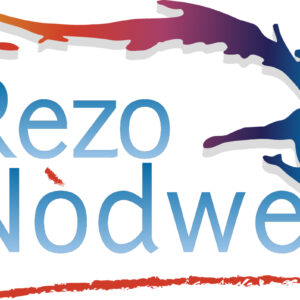With a controversial peacekeeping mission in Haiti looming, due in less than two weeks, international attention is increasingly turning to Kenya and the United Nations.
Calls for transparency and accountability are growing, with human rights groups demanding clarification on the mission’s objectives and measures to protect human rights in the troubled Caribbean nation.
The crucial question is: what will happen to an officer who shoots, kills or injures a civilian?
Leading human rights organizations are expressing growing concerns, emphasizing the need for a robust framework to ensure the protection of Haitian civilians. Among their demands, comprehensive training for the 2,500 soldiers planned for the deployment, highlighting the importance of respecting international human rights standards.
Last week, Human Rights Watch highlighted the importance for countries participating in the Multinational Security Support Mission (MSS) to put in place rigorous measures to ensure respect for human rights.
Following closely, Amnesty International called on Wednesday June 5 for pre-deployment and on-the-ground training for police and soldiers participating in the mission, provided by relevant United Nations entities.
Kenya’s engagement in this mission has highlighted its own human rights record. Past abuses by Kenyan police have prompted calls for strict supervision to avoid similar problems during the Haiti mission.
Amnesty International stressed the importance of the mission complying with international human rights law, as required by the United Nations Security Council.
Ana Piquer, Director of the Americas at Amnesty International, emphasized the issues: “Any action taken by this multinational mission must strictly adhere to international human rights law. A misstep would have devastating consequences for the Haitian people. »
Amnesty’s statement highlighted the need for training on core UN principles, including human rights law, sexual exploitation and abuse, and the protection of civilians. They also advocated for the appointment of independent experts to lead the mechanisms for assessing allegations of misconduct, avoiding interference and ensuring transparency.
Historically, international responses to Haiti have been marred by allegations of human rights violations. Previous UN missions have faced accusations of sexual violence and were blamed for the introduction of cholera after the catastrophic 2010 earthquake.
Because of this history, Amnesty International advocates for mechanisms consistent with criminal prosecutions and other accountability measures to strengthen Haitian institutional frameworks.
The highly anticipated mission, approved by the United Nations Security Council in October, has been delayed due to financial constraints and legal challenges.
First Cabinet Secretary Musalia Mudavadi, in an interview on Sunday June 2, acknowledged that no formal deployment arrangements have been finalized within the UN framework, promising transparency once decisions are made.
“We haven’t reached that level yet, and if they need to be trained, we will make it public,” he said.
Mudavadi assured that the MSS team would operate in strict compliance with security deployment regulations and UN standards. However, details of their operational conduct remain vague.
Questions persist over whether deployed personnel will commit to fighting gangs or focus solely on protecting key government infrastructure. The lack of clarity has only fueled concerns about the true intent and operational framework of the mission.
Amnesty International has called for an accessible, independent and transparent complaints mechanism to investigate allegations of misconduct and human rights violations, including sexual exploitation and abuse. They advocate for clear standards for disciplinary actions and compensation, developed with input from Haitian communities.









